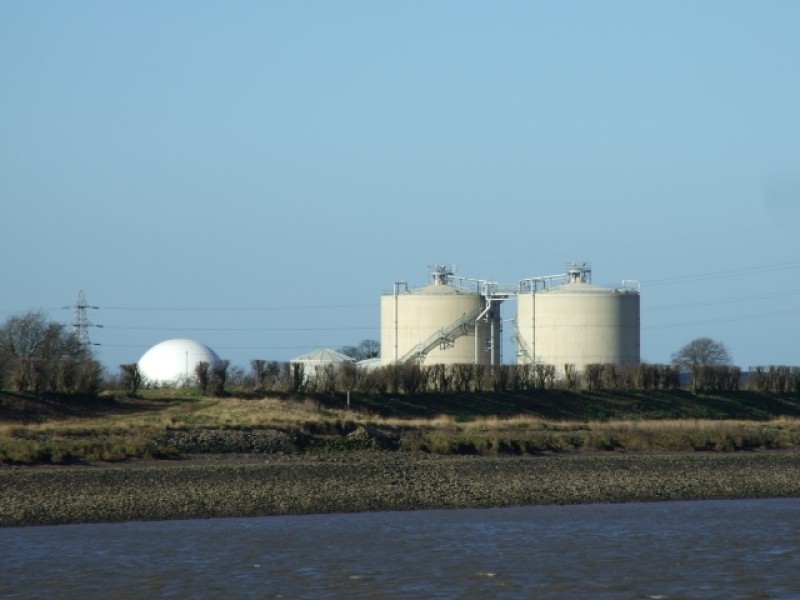The assessment made by the government’s Environment Agency found that Anglian Water did not properly address maintenance failures and faulty filtration systems that otherwise could have prevented three separate pollution incidents between May and September 2019.
Following one of the outbreaks in Hartwell, Northamptonshire, in June 2019, the East of England-based water company sent the alarm to the wrong village, thereby delaying efforts to stem the sewage overflows by several days.
A biological survey taken in the aftermath of the cleanup found traces of sewage fungus in the affected tributary—a river that flows into a larger river—of the River Tove. Dead aquatic invertebrates were also discovered 1,500 meters from the contamination site, as far down as the next village, the Environment Agency said.
Another overflow was caused by an unchecked build-up of ‘unflushables’ such as cotton buds and sanitary pads that subsequently caused a discharge of toxic sludge into the River Lark in Cambridgeshire in May 2019.
Although the site was originally outfitted with screens designed to prevent such blockages, they were removed in 2018. No explanation was provided by Anglian Water as to why alternative measures weren’t taken to mitigate the chance of blockages caused by the removal of the filters.
The waste discharged into the river ultimately lowered the dissolved oxygen levels necessary to sustain certain fish and invertebrate life, the government said.
The third incident, which took place in Steeple Claydon in September 2019, was caused by the improper placement of a filtration system on the wrong side of its tank. High levels of organic pollution subsequently seeped into the adjacent bodies of water and similarly lowered oxygen levels to the extent that they endangered local marine life.
The ruling against Anglian Water comes mere weeks after the government announced its intention to raise penalties by 1,000-fold for water-related pollution incidents, from the current £250,000 ($280,341) cap up to a proposed £250 million ($280.3 million) fine per violation.
Had the Environment Agency delayed the case until after the proposed amendment had come into effect, the total fine against Anglian Water could have been dramatically higher.
All three of the incidents were noted to have been caused by the water company’s failure to properly maintain and upgrade its filtration infrastructure.
Frequent discharges of wastewater and sewage pose significant health and environmental concerns. Humans face increased exposure to water-based pathogens, while ecosystems can be flooded with pollutants such as microplastics and heavy metals.
Almost ten percent of the U.K.’s 15,000 overflow sites are in close proximity to designated bathing areas; a backup of sewage in those waters, at any time, would pose a significant threat to the health and well-being of the community’s inhabitants.
As England is predominantly a coastal nation, any sewage polluting the environment’s water chemistry will invariably affect its population’s development for generations to come. The proposed 1000-fold raise for future fines resulting from water-related environmental hazards is intended to motivate the U.K.’s water companies to heavily invest in critical infrastructure that can stem the rising tide of serious pollution incidents documented over the past few years.
The Environment Agency has also started paying much closer attention to storm overflow sites to hold water companies more accountable for any future environmental incidents; approximately ninety percent of the country’s 15,000 overflow sites are now outfitted with monitoring devices, and the remainder will be similarly outfitted by the end of next year, the government said.
In his ruling, District Judge Nick Watson said that “Anglian Water dragged its feet’” in addressing infrastructure improvements, which he noted to be “an endemic part of the [water treatment] culture.”
While Anglian Water noted that it is not performing up to standards in some areas, “protecting, restoring and improving our region’s environment is at the heart of our business, and we take this responsibility incredibly seriously,” a spokesperson told OCCRP.
The company further said that it is “reinvesting more than £200 million ($225 million) to reduce storm spills across the East of England [by 2025]” as part of its commitment to reduce the harm storm overflows pose to the surrounding environment.
“Water companies have a huge responsibility to proactively manage the resources they have been given a responsibility for,” Judge Watson said. “Profit must not be at the cost of the environment.”






